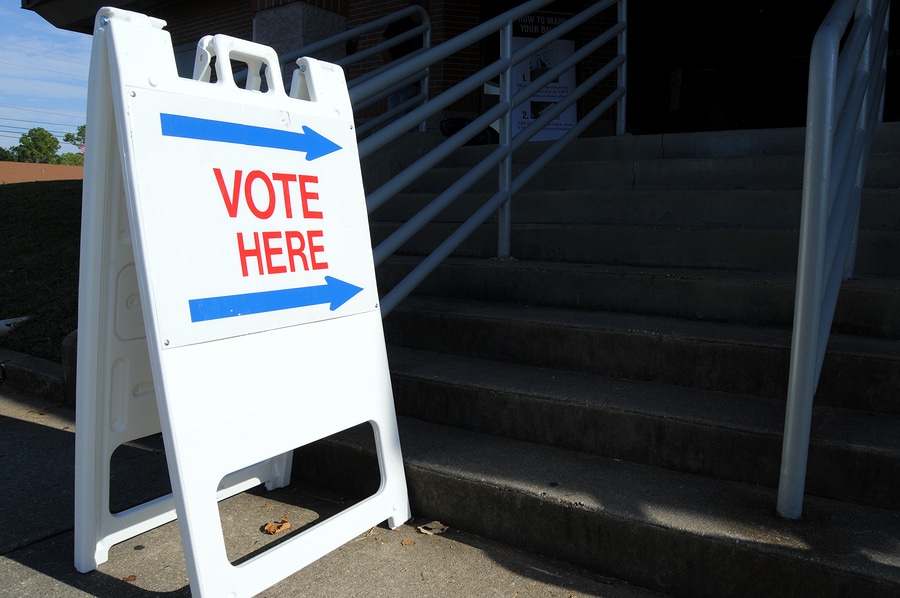2018 Election: Healthcare Issues Travelers Should Watch

One of the benefits of being a travel healthcare professional can be the opportunity to avoid hospital politics, but national politics are much harder to ignore. Many hot-button healthcare issues decided at the polls can have a direct impact on the travel healthcare job market, both positive and negative, and the 2018 midterm election on November 6 is no exception. Below, we’ve provided brief summaries on ballot initiatives across the country that could have tangible effects on the travel healthcare market. For those who need more information on when, where and how to vote in the midterms, check out our 2018 midterm election voting FAQ. 2018 Election Healthcare Issues California Prop 4, Children’s Hospital Bond Initiative Proposition 4, also known as the Children’s Hospital Bond Act Fund, would authorize $1.5 billion in bonds that would be used to award grants to children’s hospitals for construction, expansion, renovation, and equipment projects. With interest over 35 years, the bond’s total cost would be $2.9 billion. The bonds would be repaid over a period of time from the state’s General Fund, according to the state website. According to Ballotpedia, the $1.5 billion would be distributed as follows: 72 percent ($1.08 billion) to eight nonprofit hospitals providing comprehensive services to high volumes of children eligible for governmental programs and children with special health needs eligible for California Children’s Services. 18 percent ($270 million) to five University of California general acute hospitals, including the University of California, Davis Children’s Hospital; Mattel Children’s Hospital at University of California, Los Angeles; University Children’s Hospital at University of California, Irvine; University of California, San Francisco Children’s Hospital; and University of California, San Diego Children’s Hospital. 10 percent ($150 million) to public and private hospitals that provide pediatric services to children eligible for California Children’s Services Why this is important for travelers If approved by Californa voters, the massive cashflow could provide many positive benefits for both children’s facilities and travelers. Hospitals would be able to update, renovate or construct new units, which could improve quality of care for patients, improve the working environment for healthcare professionals and potentially provide staffing opportunities for travelers. Idaho Proposition 2, Medicaid Expansion Initiative Idaho Medicaid expansion advocates successfully petitioned and gathered 75,314 verified signatures to add a Medicaid expansion measure to the ballot. The petition met both state requirements to qualify the ballot measure, gathering at least 56,192 verified signatures that represented at least 18 of Idaho’s 35 legislative districts. An expansion would allow Idaho residents under 65 and earning incomes at 138 percent of the national poverty level to apply for Medicaid insurance. About 62,000 Idahoans would qualify for this coverage. Expansion would also bring in $105 million in costs to the state over 10 years and $200 million in savings, according to an independent analysis by The Milliman consulting firm. Why this is important for travelers Studies have shown that hospitals in Medicaid expansion states have not only saved tremendously on uncompensated care costs, but they also have also seen more newly-insured patients coming in for healthcare services. The increased patient needs and loosened revenue streams could result in more opportunities for healthcare travelers. You can read more about this issue in our Medicaid expansion guide. Massachusetts Question 1, Nurse-Patient Assignment Limits Initiative Approval of Question 1 in Massachusetts would establish a set nurse-to-patient ratio across all state hospitals, except during a public health emergency. This measure would also require the limits to be met without a reduction in staff, and would allow the Massachusetts Health Policy Commission to regulate and enforce the initiative, which could result in $25,000 per incident for hospitals that violate the mandated ratios. If approved, Massachusetts would become the second state with mandated nurse-to-patient ratios—currently, California is the only state that has them. According to an independent study by the Massachusetts Health Policy Commission, implementing the mandate would cost from $676 million to $949 million per year. They also estimated possible savings of $34 million to $47 million from reduced hospital length of stay and potential for improved patient care with increased nurse staffing. State hospitals would also need to increase staffing by 2,286 to 3,101 additional full-time equivalent nurses to comply with the mandated ratios, according to the study. Medical-surgical and psychiatric nurses would present the greatest needs for increased staffing. Why this is important for travelers Of all the healthcare initiatives voters will decide on at the polls this fall, Question 1 could have the biggest and most direct impact on travel nurses. Mandated ratios mean more nurse hiring, which also means significantly more opportunities for travel nurses. You can find more information additional details on the impact of this change by checking out our recent coverage of the ballot issue. Utah Utah Proposition 3, Medicaid Expansion Initiative Utah Gov. Gary Herbert signed a bill on March 27, 2018, for partial Medicaid expansion, directing the state to seek federal approval to expand Medicaid to 100% of the federal poverty level. The bill stipulated using the ACA enhanced federal match rate and adding a work requirement for the expansion population. The Center for Medicare and Medicaid Services (CMS) has not approved waivers to access the match rate until Utah approves a full expansion. In the meantime, Utah expansion advocates garnered enough petition signatures to add a competing bill to November ballots that would approve a full expansion. An expansion would provide an estimated 150,000 Utah residents with Medicaid coverage. Why this is important for travelers Studies have shown that hospitals in Medicaid expansion states have not only saved tremendously on uncompensated care costs, but they also have also seen more newly-insured patients coming in for healthcare services. The increased patient needs and loosened revenue streams could result in more opportunities for healthcare travelers. You can read more about this issue in our Medicaid expansion guide. Nebraska Nebraska Initiative 427, Medicaid Expansion Similar to Idaho and Utah, Nebraska advocates have submitted a petition to add a Medicaid expansion initiative to the midterm election ballot. Supporters filed more than 133,000 signatures on July 5 and a large enough majority
An Update On Medicaid Expansion Efforts and How They Affect Travelers

As we move closer and closer to November midterm elections in the U.S., healthcare access and quality issues have become a heated political battleground for legislators and citizens across the political spectrum. Medicaid expansion, a tentpole policy part of the Affordable Care Act passed in 2010, is one of the key divisive topics in this realm. It’s also something healthcare providers—and by extension travel healthcare professionals—are keeping an eye on, as expansion can have an impact on provider funding and patient care. What Is Medicaid Expansion? Under the Affordable Care Act, states can expand Medicaid eligibility to nonelderly adults with incomes at or below 138 percent of the federal poverty level, which equals about $16,700 a year for a single person and $34,600 for a family of four. Expansion states are funneled billions of dollars from the federal government to support expansion efforts and coverage for newly insured populations. In states that haven’t expanded, those adults fall into a “coverage gap” for having incomes above traditional Medicaid eligibility but below the limit to get approved for ACA marketplace premium tax credits. So far 34 states have approved Medicaid expansion, two states—Maine and Virginia—are in the works to implement expansions, and three states—Idaho, Utah and Nebraska—could potentially approve Medicaid expansion this year. Why is Medicaid expansion important to travelers? Simply put, hospitals in states that expand Medicaid can expect to see a new influx of patients looking for care on a regular basis which can affect seasonal staffing needs. A Commonwealth Fund study in 2015 found that 4 out of 10 primary care physicians who accepted Medicaid saw an increase in patients after expansion coverage took full effect. Additionally, studies have shown that hospitals in expansion states have much healthier budgets, which can leave more money on the table for hiring and retaining temporary or permanent staff. According to an analysis by the Kaiser Family Foundation, expansion hospitals saw “significantly improved hospital operating margins.” These factors don’t completely guarantee that facilities in expansion states will overflow with traveler needs, but it can help prevent razor-thin hospital budgets and get executives thinking about how to ease the burden on their permanent staff. What’s happening in states with plans for Medicaid expansion? Maine Medicaid was supposed to be available to newly eligible Maine residents on July 2, but a series of appeals and heated courtroom battles have kept expansion in limbo, leaving more than 70,000 without coverage. At the heart of the issue is Republican Gov. Paul LePage, who has vetoed Medicaid expansion efforts six times in office. Mainers approved Medicaid expansion through a referendum vote with a 59 percent voting majority in 2017, but LePage refuses to submit a plan to the federal government until sufficient state funding—under his terms—is found. LePage was ordered by a Superior Court justice to submit a plan in June, but his administration appealed the ruling to the Maine Supreme Court, saying they did not have to file a plan during the appeal process. Arguments for the appeal took place on July 18, but the court has yet to make a decision. You can view a more detailed timeline of the events leading up to the court hearing by clicking here. Idaho Advocates in Idaho successfully petitioned and gathered 75,314 verified signatures to add a Medicaid expansion measure to the ballot this November. The petition met both state requirements to qualify the ballot measure, gathering at least 56,192 verified signatures that represented at least 18 of Idaho’s 35 legislative districts, according to Ballotpedia. Utah Utah Gov. Gary Herbert signed a bill on March 27, 2018, for partial Medicaid expansion, directing the state to seek federal approval to expand Medicaid to 100% of the federal poverty level. The bill stipulated using the ACA enhanced federal match rate and adding a work requirement for the expansion population. To date, the Center for Medicare and Medicaid Services (CMS) has not approved waivers to access the match rate until Utah approves a full expansion. In the meantime, Utah expansion advocates garnered enough petition signatures to add a competing bill to November ballots that would approve a full expansion. Nebraska Similar to Idaho and Utah, Nebraska advocates have submitted a petition to add a Medicaid expansion initiative to the midterm election ballot this fall. Supporters filed more than 133,000 signatures on July 5, but the Secretary of State office is still verifying the signatures. At least 84,908, or more than 60 percent, of the signatures need to be valid for the initiative to make the ballot.
